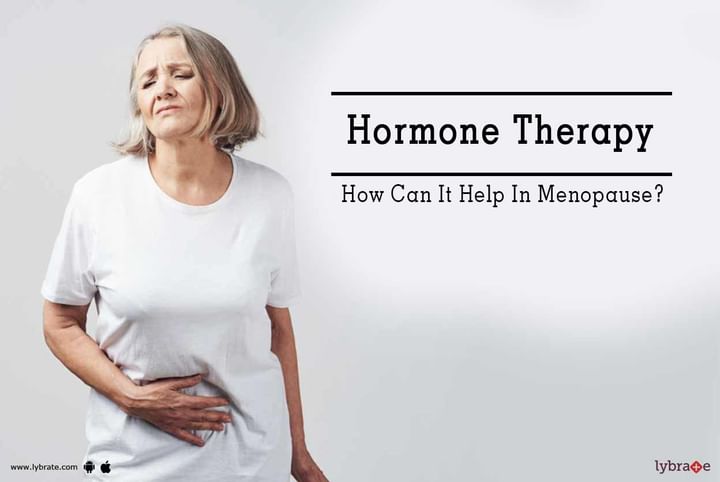Hormone Therapy - How Can It Help In Menopause?
The menopause can take three very different routes for women. There are those who sail through it with very few symptoms or problems and don't even notice that their ovaries have stopped producing the hormone. Then there are those for whom it is a matter of a few hot flushes and a couple of night sweats, doesn't last long and not really a bother. This usually marks a relief from the periods. But for some, it is abject misery accompanied by crippling fatigue, absolute exhaustion, hot flushes, vaginal drying, mood swings along with low desire or lack of sexual feelings. These symptoms might persist for more than 7 years.
Hormone Replacement Therapy (HRT) is considered to be an effective treatment for menopausal symptoms. The other problems linked with menopause can also be influenced by HRT in a positive manner.
HRT is indicated in:
- Treatment of symptoms of menopause and the risk-benefit ratio is apt for the women and they have been informed about the same
- HRT is indicated in symptomatic patient, nearing menopause.There are other rare indication like osteoporosis. Your gynaecologist will decide it.
- HRT is started only after examination and after doing some blood tests, also mammogram if necessary.
Benefits of HRT:
The benefits of HRT usually are more than the risk if done in a woman who is under 60 years of age.
These include:
- Improvement of the quality of life by relieving muscle pains, and improving sleep
- The mood swings are controlled and low moods are usually alleviated by HRT. Low moods usually arise due to menopause.
- It reduces the vasomotor symptoms, usually within four months of the treatment with maximum benefit in three months
- HRT improves the urogenital symptoms by lowering the vaginal dryness, vaginal atrophy, urinary frequency and symptoms.
- HRT reduces the risk of osteoporosis. HRT is believed to preserve the bone mass density of the skeletal sites thus reducing the chances of vertebral and non-vertebral fractures.
- HRT also reduces the risk of colorectal cancer and cardiovascular diseases
The main risks of HRT are stroke, endometrial and breast cancer, thromboembolic disease, pulmonary embolism and gallbladder disease.
- It increases the risk of ischemic stroke
- There is a small risk associated with breast cancer and the risk increases more if the woman is underweight or overweight, alcohol user, smoker and stops HRT suddenly
- Estrogen-only HRT can increase the risk of endometrial cancer. If cyclical progestogen is used for 10 days for 28 cycles then the risk is eliminated.



+1.svg)
